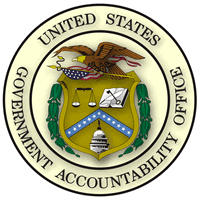 Image via Wikipedia
Image via Wikipedia
This is the ninth installment in a multi-part series on procedural safeguards under the federal special education law, the Individuals With
Disabilities Education Act. I work a lot in this area, so it is near and dear to my heart. Despite the importance of procedural safeguards. however, many issues in this area are misunderstood. I hope that all of the different types of special education stakeholders who read this blog find the information in this series helpful. Be sure to tell me what you think about the series.
State Complaint Procedures
Each
state education agency must maintain a state complaint procedure. 34
C.F.R. §§300.151-300.153. OSEP has stated that the state complaint system is required even though
Congress has not specifically provided or addressed a state complaint system in the IDEA. 71 Fed. Register No. 156 at page 46606 (August 14, 2006).
Within one year of an alleged violation of the Act, any entity may file a state complaint. 34 C.F.R. §§300.151-300.153. A ruling is required within 60 days subject to extension for exceptional circumstances or an agreement to mediate. 34 C.F.R. §300.152. Only agreement, and not consent, is required to extend the 60 day time limit for processing complaints. 71 Fed. Register No. 156 at page 46604 (August 14, 2006). Here is
an analysis by the Regional Resource Centers concerning how the exceptional circumstances exception should be applied.
Where a state complaint and a due process hearing are requested on the same topic, the complaint investigator must set aside the portion of the complaint being addressed by due process until the hearing officer issues a decision. 34 C.F.R. §300.152(c). 71 Fed. Register No. 156 at page 46606 (August 14, 2006).
Where a state complaint investigator finds that IDEA has been violated, a corrective action is ordered. The relief that may be awarded includes compensatory education and reimbursement. 34 C.F.R. § 300.151(b). The purpose of this change to the federal regulations in 2006 was to make it clear that states have broad flexibility in awarding an appropriate remedy in resolving state complaints. 71 Fed. Register No. 156 at page 46602 (August 14, 2006).
When a state has finished processing a state complaint, a party who disagrees with the result may file a due process hearing complaint on the same issue if the statute of limitations has not passed. 71 Fed. Register No. 156 at page 46607 (August 14, 2006).
Here is the OSEP
Topic Brief on State Complaint Procedures:
 Image via Wikipedia
Image via Wikipedia

























